



If you ever find yourself wandering through Volgograd,you’ll immediately sense a city that carries the weight of history with a surprising warmth and resilience. The air hums with stories—of courage,survival,and rebirth—especially around the towering Motherland Calls statue,which feels like a silent guardian watching over the city. Walking along the Volga River embankment,you can hear the gentle lapping of water mixed with the distant chatter of locals enjoying a sunny afternoon,while the scent of fresh bread and strong coffee drifts from nearby cafés. Volgograd’s streets are a blend of Soviet-era architecture and modern touches,giving the city a unique rhythm. You’ll notice the way the light plays off the wide boulevards and the green parks where families gather,kids laugh,and old friends share stories on benches. The city’s character is deeply tied to its past,but it’s not stuck there—it’s alive,evolving,and proud. Museums and memorials invite you to reflect,but the vibrant markets and cozy eateries remind you that life here is very much about the present. Don’t miss trying the local flavors—think hearty borscht that warms you from the inside out or freshly baked pirozhki that melt in your mouth. Volgograd isn’t just a place to visit; it’s a place to feel,to connect with a spirit that’s both solemn and hopeful. It’s a city that stays with you long after you’ve left,whispering stories of strength and renewal.
The information on this page is currently being reviewed by Tripkliq and should be used as a guide only
Eng word: Hello
Eng pronunciation: Zdravstvuyte
Local language: Здравствуйте
Eng word: Goodbye
Eng pronunciation: Do svidaniya
Local language: До свидания
Eng word: Thank you
Eng pronunciation: Spasibo
Local language: Спасибо
Eng word: How much
Eng pronunciation: Skol'ko stoit
Local language: Сколько стоит
Eng word: Toilet
Eng pronunciation: Tualet
Local language: Туалет
Eng word: Help me
Eng pronunciation: Pomogite mne
Local language: Помогите мне
Eng word: Yes
Eng pronunciation: Da
Local language: Да
Eng word: No
Eng pronunciation: Nyet
Local language: Нет
Eng word: Excuse me
Eng pronunciation: Izvinite
Local language: Извините
Volgograd, then known as Stalingrad, was the site of one of the bloodiest battles in history during World War II. The Battle of Stalingrad lasted from August 1942 to February 1943 and resulted in over two million casualties.
The city was originally named Tsaritsyn before being renamed Stalingrad in 1925 in honor of Soviet leader Joseph Stalin. In 1961, the city was renamed Volgograd.
Volgograd is located on the western bank of the Volga River, the longest river in Europe. The city's name is derived from the river, with 'Volga' meaning 'moisture' or 'wetness' in Old Slavic.
Mamayev Kurgan is a dominant height overlooking the city of Volgograd and was the site of fierce fighting during the Battle of Stalingrad. Today, it is home to the Motherland Calls statue, one of the tallest statues in the world.
During World War II, the Stalingrad Tractor Factory played a crucial role in producing tanks and other military equipment for the Soviet Union's war effort. The factory was heavily bombed during the Battle of Stalingrad.
The Voroshilovskiy District in Volgograd is named after Soviet military commander Kliment Voroshilov, who played a key role in defending Stalingrad during World War II.
Founded in 1935, Volgograd State Medical University is one of the oldest and largest medical universities in Russia. It has trained thousands of doctors and medical professionals.
Pavlov's House was a fortified apartment building in Stalingrad that played a key role in the defense of the city during the Battle of Stalingrad. It was named after Sergeant Yakov Pavlov, who commanded the defenders.
The Museum of the Defense of Stalingrad in Volgograd is dedicated to preserving the memory of the Battle of Stalingrad and honoring the soldiers who fought and died in the conflict.
In Volgograd, the most common Power Adaptor is Type C, Type F.


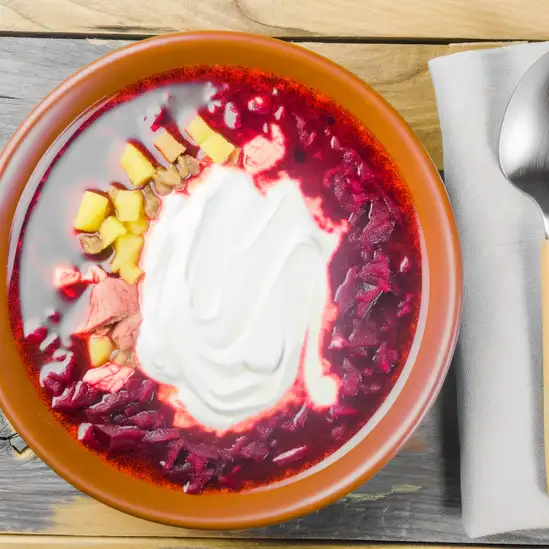
A beetroot soup that is commonly served hot or cold, often accompanied by sour cream and fresh herbs, showcasing the vibrant flavors of the region.
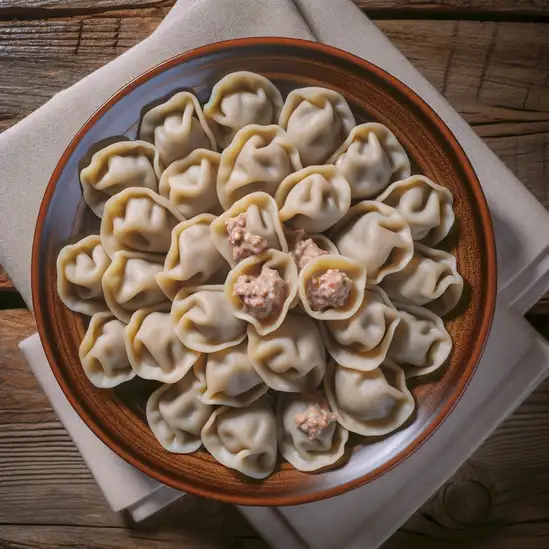
Dumplings filled with minced meat, typically served with sour cream or butter, and are a popular comfort food in Volgograd.
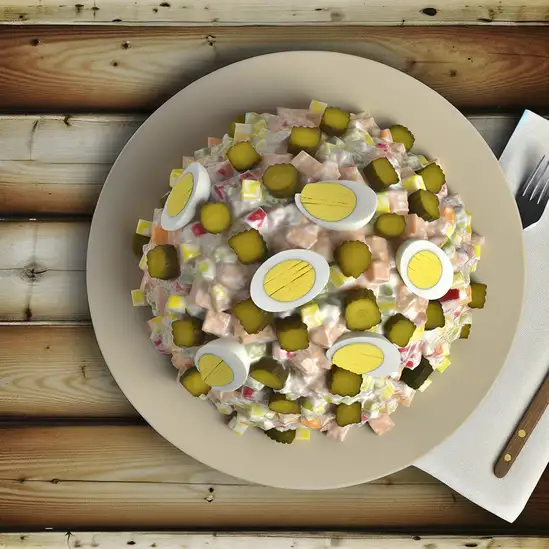
A classic Russian salad made with diced boiled vegetables, pickles, eggs, and meat, dressed with mayonnaise, often served during festive occasions.
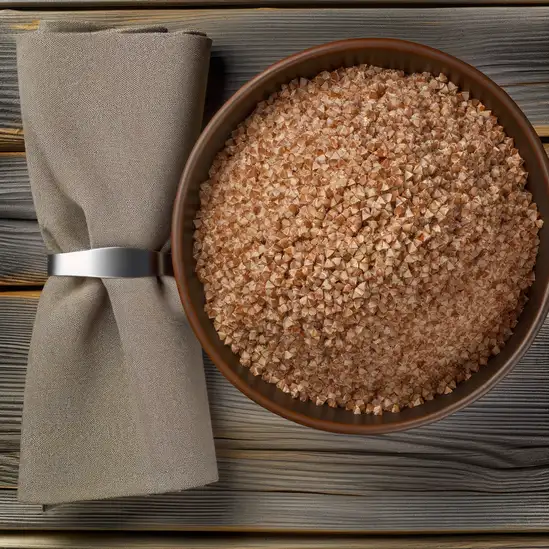
A dish made from various grains, such as buckwheat or barley, often served as a side dish or main course, reflecting the local agricultural heritage.
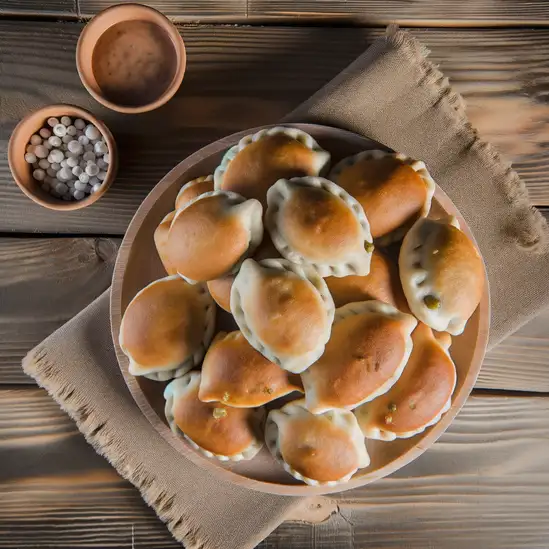
Small baked or fried buns filled with a variety of fillings, including meat, cabbage, or sweet fruits, popular as snacks or street food.
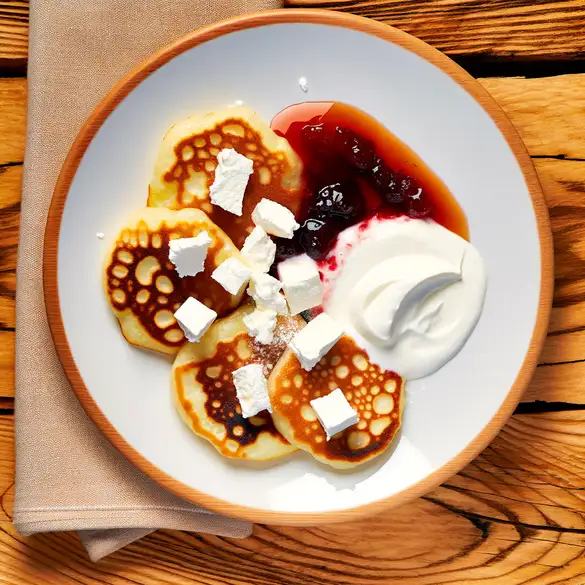
Cheese pancakes made from cottage cheese, typically served with sour cream, jam, or honey, enjoyed as a breakfast or dessert.

A traditional Russian cabbage soup, often made with fermented cabbage, meat, and various vegetables, providing a hearty and tangy flavor.
Moscow feels like stepping into a living storybook where history and modern life dance together in a vibrant rhythm. The moment you arrive,there’s this electric buzz in the air—whether it’s the clatter of the metro trains echoing underground or the chatter spilling out from cozy cafés tucked between grand,onion-domed cathedrals. Walking through Red Square,you can almost hear the whispers of centuries past,but then a street musician’s lively tune pulls you back to the present. The city’s architecture is a feast for the eyes:bold,colorful,and unapologetically dramatic,from the intricate mosaics of the Kremlin to the sleek glass towers piercing the skyline.
Moscow’s streets are alive with contrasts. You might catch the scent of freshly baked pirozhki mingling with the crisp winter air or the rich aroma of strong coffee from a bustling café where locals debate everything from art to politics. The parks invite you to slow down—imagine sitting by the Moskva River,watching the golden light bounce off the water as the city hums around you. There’s a warmth beneath the city’s grandiosity,a genuine friendliness in the smiles of people who are proud of their culture and eager to share it.
What really makes Moscow unforgettable is its pulse—a blend of old-world charm and contemporary energy. Whether you’re savoring traditional borscht in a family-run restaurant or catching a ballet at the Bolshoi,the city invites you to dive deep,to feel its stories,and to come away with a sense of having experienced something truly alive.
If you wander through Saint Petersburg,you’ll immediately feel like you’ve stepped into a living,breathing piece of art. The city hums with a unique blend of imperial grandeur and bohemian spirit,where baroque palaces and ornate bridges stretch over shimmering canals,reflecting the soft glow of the northern sky. There’s a certain magic in the air,especially during the White Nights when the sun barely dips below the horizon,bathing everything in a gentle,golden light that makes the city feel both timeless and alive.
As you stroll along Nevsky Prospect,the sounds of street musicians mingle with the chatter of locals and the clinking of coffee cups from cozy sidewalk cafés. The scent of fresh-baked pirozhki and rich Russian coffee drifts through the air,inviting you to pause and savor the moment. Inside the Hermitage,the walls whisper stories of czars and artists,while outside,the Neva River glistens,its gentle waves lapping against the embankments.
Saint Petersburg’s character is a fascinating mix of resilience and elegance. It’s a city that has endured so much yet still radiates warmth and creativity. Whether you’re exploring its labyrinthine courtyards,catching a ballet at the Mariinsky Theatre,or simply watching the world go by from a riverside bench,you’ll find yourself drawn into its rhythm. It’s a place that stays with you long after you leave,inviting you to return and uncover even more of its layered charm.
Imagine a place where the Black Sea’s gentle waves kiss sun-warmed shores,and the scent of pine from nearby mountains mingles with the salty breeze—that’s Sochi for you. This city has a laid-back yet vibrant energy,like a friend who’s both adventurous and welcoming. Walking along the palm-lined promenade,you’ll hear the laughter of families,the chatter of locals sipping coffee at cozy street cafes,and the distant hum of music from open-air bars. It’s a place where the seasons blend beautifully:in summer,the beaches buzz with life,while winter brings a crisp freshness as the nearby Caucasus Mountains invite skiers and hikers alike.
What really makes Sochi stand out is its unique mix of cultures and landscapes. You can wander through bustling markets filled with fresh fruit,spices,and handmade crafts,then find yourself in a quiet park where the air smells of blooming magnolias and jasmine. The city’s architecture is a charming patchwork—from Soviet-era buildings to modern resorts—each telling a story of its evolving spirit. And the food? Oh,the food! Fresh seafood grilled to perfection,rich khachapuri oozing with cheese,and sweet,juicy berries that taste like summer itself.
Visiting Sochi feels like stepping into a warm embrace of nature and culture. It’s a place where you can lose yourself in the rhythm of the sea,explore mountain trails,and savor moments that linger long after you’ve left. Trust me,once you’ve felt the city’s pulse,you’ll find yourself dreaming of coming back.
If you ever find yourself wandering through Russia,Kazan is a city that feels like a warm embrace from a place where East meets West in the most vibrant way. The moment you step into its streets,there’s this lively hum—mosques and churches standing side by side,the call to prayer blending with the chime of church bells. It’s a city that wears its rich history proudly but pulses with youthful energy,especially around the Kazan Kremlin,where ancient walls frame a skyline dotted with colorful domes and sleek modern buildings.
Walking along the Volga River embankment,you’ll catch the scent of fresh pastries from nearby bakeries mingling with the crisp river air. Cafés spill out onto cobblestone streets,inviting you to sip on strong Tatar tea while watching locals chat animatedly or musicians strum soulful tunes. The food scene here is a delightful surprise—think hearty chak-chak dripping with honey,tender echpochmak pies,and spicy,aromatic dishes that tell stories of Tatar culture.
What really stays with you is Kazan’s spirit:a city that’s proud yet welcoming,where tradition and innovation dance together effortlessly. Whether you’re exploring the vibrant markets,catching a performance at the opera house,or simply soaking in the sunset over the Kremlin’s towers,Kazan feels like a place that invites you to slow down,listen,and savor every moment.
Located near the Caspian Sea,Astrakhan is known for its proximity to the Volga Delta,a unique natural area with islands and rich biodiversity. It is also famous for its historic Kremlin and sturgeon caviar.
ExploreA picturesque city on the Crimean Peninsula,Yalta is renowned for its stunning coastline,the Livadia Palace,and its role as a historic resort destination. It offers breathtaking views and a mix of cultural and natural attractions.
ExploreTourists using ATMs may be targeted by criminals who install skimming devices to steal card information.
Unlicensed currency exchange offices or individuals may offer poor exchange rates or give counterfeit money to tourists.
Unlicensed individuals may pose as tour guides, offering overpriced or subpar tours with little historical or cultural value.
Tourists may encounter vendors selling counterfeit or low-quality souvenirs at high prices, claiming they are authentic or handmade.
Crowded areas, such as markets or public transportation, are hotspots for pickpockets targeting tourists who may be distracted.
Some restaurants may have dual menus, charging tourists higher prices than locals or adding hidden fees to the bill.
Some taxi drivers may refuse to use the meter and charge tourists inflated prices for rides, especially from airports or train stations.
The possession, use, and distribution of illegal drugs are strictly prohibited in Volgograd and throughout Russia. Penalties for drug-related offenses can be severe, including heavy fines, imprisonment, and deportation for foreign nationals. Even small quantities of illegal substances can lead to significant legal consequences. Tourists should exercise caution and avoid any involvement with drugs during their stay.
In Volgograd, as in the rest of Russia, smoking is prohibited in many public places. This includes educational institutions, healthcare facilities, sports facilities, playgrounds, public transportation, and within 15 meters of entrances to subway stations, airports, and railway stations. Smoking is also banned in restaurants, bars, and cafes unless they have designated smoking areas. Violations can result in fines.
Vaping is subject to similar regulations as smoking in Volgograd. The use of electronic cigarettes is prohibited in the same public places where smoking is banned. This includes educational and healthcare facilities, public transportation, and within 15 meters of entrances to subway stations, airports, and railway stations. Vaping in restaurants, bars, and cafes is also restricted unless there are designated areas. Fines may be imposed for violations.
What are other people saying about Volgograd?
Recent Social posts about Volgograd
There is nothing to show you for now.